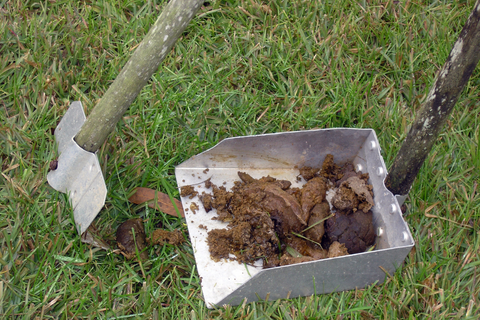Pet Waste Management: Myths and Facts

Updated on April 5, 2024
When discussing pet waste management (yes, dog owners talk about dog poop just like first-time parents talk about their baby's poop), there are endless myths we tend to believe, but they're not always true. Hence, it’s crucial to delve into the specifics of pet waste management.
Are you ready to learn which beliefs hold true and which do not, particularly in the realm of pet waste management with your furry friend?
Myths And Facts of Pet Waste Management
A few decades back, pet waste management wasn't as prioritized as it is today. The common practice was to ignore dog waste during walks, leading to unsanitary conditions in public spaces.
Interestingly, this lack of pet waste management persists in some regions globally. Yet, the growing awareness and adoption of eco-friendly practices, like using compostable, 100% plastic-free poop bags, signify a shift towards responsible pet waste management.
Let’s debunk some myths and facts about pet waste management:
1. Flushing Dog Poop Is The Best Pet Waste Management Strategy: HALF FACT
Indeed, flushing dog poop is a practical pet waste management method.
Agencies such as the U.S. Environmental Protection Agency and the National Resources Defense Council advocate for it as a means to prevent fecal bacteria from contaminating the environment. However, the reality of pet waste management involves more than just flushing, as it requires careful handling to avoid plumbing issues.
While flushable dog poop bags are marketed as eco-friendly, they're not always suitable for every sewage system, highlighting the complexities of pet waste management.
Check out: Flushable Dog Poop Bags: Are They Good for the Environment?
Note: never flush your cat's poop down the toilet, as it can contain the bacterium Toxoplasma gondii, which is extremely contagious to people and animals.
2. Dog Poop as Outdoor Compost: MYTH
Turning dog poop into compost is a part of pet waste management but leaving it outdoors untreated is hazardous.
Research in Environmental Science and Technology shows that untreated pet waste can pose significant health risks. Proper pet waste management involves specific composting methods to safely decompose dog poop.
Discover: Compost Dog Poop: The Only Guide You Will Use
3. Dog Poop's Harmlessness: MYTH
Bacteria and parasites from dog waste can lead to severe health issues. Effective pet waste management means safely disposing of or composting dog poop to prevent disease.
Your dog's poop can have bacteria like:
- Campylobacteriosis, the main symptoms of which are diarrhea, abdominal pain, and fever.
- Campylobacter can be a bacterial infection that can travel to the bloodstream and result in a life-threatening infection.
- E. Coli, whose symptoms are usually vomiting, diarrhea, and fever.
- Salmonellosis, usually causes fever, muscle aches, headache, vomiting, and diarrhea.
Also, it can contain parasites. Cyclospora infection causes gastroenteritis, while Roundworm larvae present in dog waste can migrate to the human body and cause complicated diseases.
So what is the best way to get rid of dog poop?
The Best Pet Waste Management Practices
Creating a compost bin for dog waste offers an environmentally friendly solution for pet waste management, turning it into useful compost for non-edible plants.
While some advocate flushing dog poop as part of pet waste management, the presence of pathogens in dog waste raises concerns about this method's efficacy. Thus, composting emerges as a preferable pet waste management strategy.FAQ

What Is The Most Eco-Friendly Way To Get Rid Of Dog Poop?
Experts still debate what is the best way to dispose of dog poop. Some argue that flushing dog waste is the best option. However, other specialists maintain that this could collapse the pipes and also generate land contamination, in the event that the purifiers suffer any inconvenience that forces them to release the water. On the other hand, experts also point out that composting dog poop would be a good way to get rid of it. However, for this, a series of recommendations must be followed that make it possible to eliminate bacteria.
What Happens If You Don't Clean Up Dog Poop?
The parasites and bacteria in dog waste can cause a wide range of illnesses, including salmonella. The risk for disease transmission is highest when you don't pick up after your pup!
E coli has also been found, along with other potentially harmful microbes that are carried around by pet dander (which sounds exactly how it sounds). You might not even know it's there but still end up infected because these microscopic creatures live off our skin cells while they're invisible - no wonder why people love having clean houses...
How Long Does Dog Poop Take To Decompose?
The decomposition process for dog poop can take up to a year in very cold climates, with hard, consistent feces made mostly out of meat. In contrast, though, it's worth noting that smaller sized poops will break down much quicker than larger ones do - typically within two months! The type of food your pup eats also affects how long they'll spend decomposing.




Leave a comment